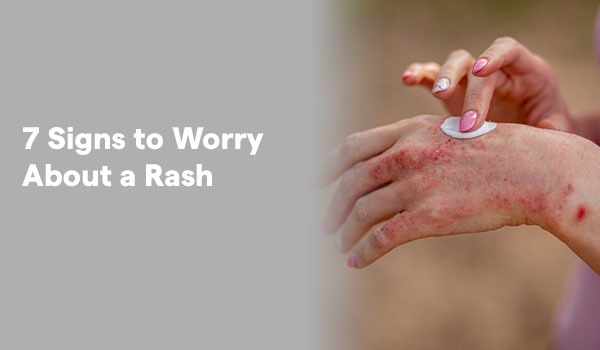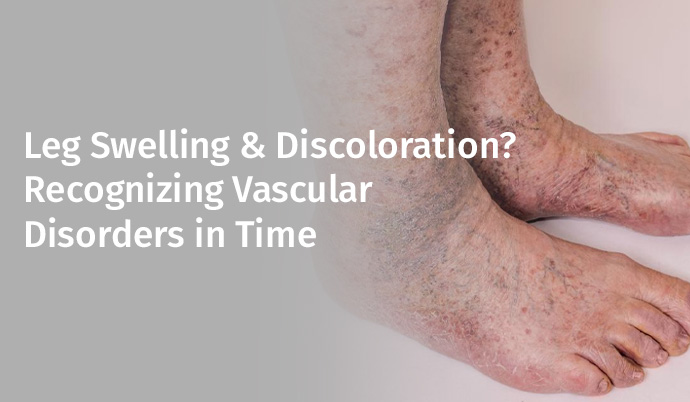
The American Academy of Dermatology reports that more than 84 million Americans are affected by skin diseases annually, and eczema alone affects more than 31 million individuals. These ailments range from mild irritants to life-threatening infections and autoimmune diseases. While some rashes fade independently, others signal something deeper, like an allergy, an infection, or even a systemic illness.
Early recognition of a developing rash is not paranoia, rather, it is a smart and bold choice towards proactive healthcare. Here are 7 signs that your rash might be signalling something more serious:
1. Rapid Spread of the Rash
If a rash is spreading rapidly, particularly within hours, it may be an allergic reaction or infection. Conditions such as Cellulitis (a bacterial infection of the skin) can result in rapidly expanding redness and swelling. Medical attention is needed immediately for this condition to avoid complications.
2. Blisters or Open Sores
Blisters or open sores may be symptoms of infections like Impetigo or viral infections like Herpes Zoster (shingles). Such rashes usually need antiviral or antibiotic medications to recover.
3. Rash With Repetitive Fever
A rash with fever could indicate a systemic illness or infection, like Measles or Scarlet Fever. Such conditions can be dangerous to one's health and usually need immediate medical attention.
4. Painful Sensations
Whereas most rashes itch, a painful rash may signal conditions such as Shingles or some forms of Dermatitis. Rashes that at persistently painful must be checked thoroughly by a dedicated healthcare professional to determine the cause and the treatment.
5. Persistent or Recurrent Rash
A recurrent rash that does not respond to over-the-counter medicines or that cycles back is likely a symptom of chronic skin illnesses such as Psoriasis or Eczema. Eczema occurs in some 10% of Americans worldwide and usually needs treatment by a specialist.
6. Changes in Skin Colour or Texture
Marked alterations in the colour or texture of your rash, including darkening, hardening, or scaling, may be a sign of more severe conditions such as Lichen planus or even Skin cancer. Visible impact and changes on the skin due to rashes must be thoroughly evaluated by a dermatologist from the best dermatology hospital in Delhi.
7. Involvement of Sensitive Areas
Rashes that appear on sensitive areas like the eyes, mouth, or genitals can be particularly concerning. These areas are more susceptible to infections and complications, necessitating prompt medical evaluation.
When to Get Medical Help
Most rashes are benign and resolve with a little TLC (Tender Loving Care), but some require more attention. If your rash is spreading quickly, hurting, accompanied by fever, or not improving after a few days, call in the specialists. Rashes that come on suddenly or occur on sensitive areas such as the eyes, mouth, or genitals cannot be ignored. Timely diagnosis by a specialist can reduce the chances of complications several-fold, lower the risk of infection, and hasten the recovery rate. If in doubt, trust your instincts and your dermatologist.
Preventive Measures
Your skin is more than just a pretty face, it's your body's biggest organ and frequently the first to throw up flags when something is amiss inside. A rash may look harmless at first glance, but in most instances, it's your immune system alerting you. It may be inflammation, an infection, an allergic response, or something more chronic, but paying attention to your skin can help you catch underlying problems in their tracks. Disregarding chronic rashes can result in complications, such as delayed healing or missed diagnosis. That's why it's crucial to pay attention to new, spreading, painful, or returning skin changes. Don't wave off what your body's telling you, particularly when it's saying it in a bright red badge. Seek advice from a specialist or primary care doctor and book an appointment at Sir Ganga Ram Hospital at the proper time, which can mean the difference between a quick solution and a chronic problem. When it comes to skin issues, earlier is always better.




